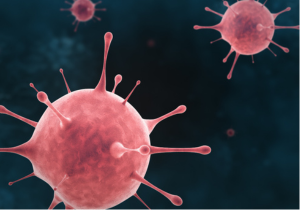-
3rd floor, HQ CityWalk, Vijay Nagar, Indore, M.P. 452010
What are the symptoms of prostate cancer?

What are the symptoms of prostate cancer? The prostate gland, a tiny organ in the male reproductive system, is impacted by the disease known as
Introduction:
Prostate cancer is a prevalent form of cancer that affects men, specifically targeting the prostate gland. In this blog, we aim to shed light on prostate cancer, including its causes, risk factors, symptoms, diagnosis, treatment options, and the importance of support and hope in the journey towards healing and well-being.
Causes and Risk Factors:
The exact cause of prostate cancer remains unknown, but certain risk factors have been identified. These include age (with the risk increasing after the age of 50), family history of prostate cancer, ethnicity (with higher rates among African American men), and certain genetic mutations. Understanding these risk factors can help individuals make informed decisions about their health and engage in appropriate screenings.
Symptoms and Diagnosis:
In the early stages, prostate cancer may not cause noticeable symptoms. As the disease progresses, symptoms may include difficulty urinating, weak urine flow, frequent urination (especially at night), blood in urine or semen, erectile dysfunction, pain or discomfort in the pelvic area, or bone pain. Regular screenings, including prostate-specific antigen (PSA) blood tests and digital rectal exams (DRE), aid in the early detection of prostate cancer.
Treatment Options:
The treatment approach for prostate cancer depends on several factors, including the stage and aggressiveness of the cancer, overall health, and patient preferences. Treatment options may include active surveillance (monitoring the cancer’s progression), surgery to remove the prostate gland (prostatectomy), radiation therapy, hormone therapy to reduce the levels of testosterone that fuel the cancer’s growth, chemotherapy, and immunotherapy. The treatment plan is personalized to provide the best possible outcome for each individual.
Support and Hope:
A prostate cancer diagnosis can be emotionally challenging, but support and hope are crucial in navigating the journey. Joining support groups, seeking counseling services, and connecting with organizations dedicated to prostate cancer can provide invaluable emotional support, education, and resources. It is important for patients, their families, and caregivers to know that they are not alone and that there is a community ready to offer support and guidance throughout their experience.
Promoting Awareness and Early Detection:
Raising awareness about prostate cancer is vital to promote early detection and improve outcomes. Educating men about the risk factors, symptoms, and the importance of regular screenings empowers them to take charge of their health. Encouraging open conversations, addressing myths and misconceptions, and advocating for routine check-ups can contribute to a proactive approach in managing prostate health.





